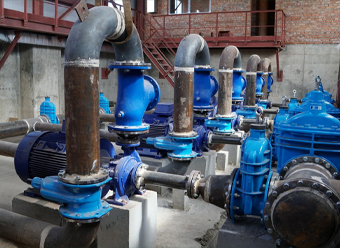English
- Afrikaans
- Albanian
- Amharic
- Arabic
- Armenian
- Azerbaijani
- Basque
- Belarusian
- Bengali
- Bosnian
- Bulgarian
- Catalan
- Cebuano
- Corsican
- Croatian
- Czech
- Danish
- Dutch
- English
- Esperanto
- Estonian
- Finnish
- French
- Frisian
- Galician
- Georgian
- German
- Greek
- Gujarati
- Haitian Creole
- hausa
- hawaiian
- Hebrew
- Hindi
- Miao
- Hungarian
- Icelandic
- igbo
- Indonesian
- irish
- Italian
- Japanese
- Javanese
- Kannada
- kazakh
- Khmer
- Rwandese
- Korean
- Kurdish
- Kyrgyz
- Lao
- Latin
- Latvian
- Lithuanian
- Luxembourgish
- Macedonian
- Malgashi
- Malay
- Malayalam
- Maltese
- Maori
- Marathi
- Mongolian
- Myanmar
- Nepali
- Norwegian
- Norwegian
- Occitan
- Pashto
- Persian
- Polish
- Portuguese
- Punjabi
- Romanian
- Russian
- Samoan
- Scottish Gaelic
- Serbian
- Sesotho
- Shona
- Sindhi
- Sinhala
- Slovak
- Slovenian
- Somali
- Spanish
- Sundanese
- Swahili
- Swedish
- Tagalog
- Tajik
- Tamil
- Tatar
- Telugu
- Thai
- Turkish
- Turkmen
- Ukrainian
- Urdu
- Uighur
- Uzbek
- Vietnamese
- Welsh
- Bantu
- Yiddish
- Yoruba
- Zulu
Telephone: +86 13120555503
Email: frank@cypump.com
Oct . 12, 2024 15:08 Back to list
High-Efficiency Slurry Pumps for Demanding Applications in High-Pressure Environments
High Pressure Slurry Pumps The Backbone of Heavy-Duty Industries
In various heavy-duty industries, the transportation of abrasive and viscous materials is a common requirement. From mining and mineral processing to chemical production and wastewater treatment, the need for robust and efficient pumping solutions is paramount. High-pressure slurry pumps emerge as indispensable tools in this regard, designed to handle demanding conditions and extreme operational requirements.
Understanding Slurry Pumps
Slurry pumps are specifically engineered to transport suspensions of solid particles within a liquid. These pumps are utilized in settings where the materials being moved are abrasive, corrosive, or consist of challenging fluid mixtures, such as slurries composed of water, mud, minerals, and chemicals. Unlike standard pumps, slurry pumps have unique designs that make them suitable for handling solid-laden fluids.
Why High Pressure?
High pressure becomes necessary in slurry pumping applications for several reasons. Many industrial processes involve long transportation distances or elevated elevations, requiring pumps that can maintain flow rates against significant resistance. High-pressure slurry pumps assure that the material continues to flow efficiently even under these conditions. The ability to generate and withstand high pressures contributes to system efficiency and reliability, allowing for the continuous operation that many industries depend on.
Applications Across Industries
The applications of high-pressure slurry pumps span across numerous sectors. In the mining industry, they are extensively used to transport tailings, a waste product that consists of crushed rock and other materials. This process is essential for efficient mine waste management and environmental compliance.
The mineral processing sector also relies heavily on high-pressure slurry pumps during operations such as grinding and ore extraction. These pumps help in the efficient movement of ore slurries, ensuring optimal recovery rates. In the chemical process industry, they are commonly employed to handle corrosive materials which, due to their nature, necessitate specialized pump designs to prevent premature wear and failure.
In the wastewater treatment industry, high-pressure slurry pumps manage sludge, a byproduct of the treatment process. By effectively handling solids-laden fluids, these pumps play a crucial role in maintaining the flow and ensuring proper treatment methods are employed.
Key Features of High-Pressure Slurry Pumps
high pressure slurry pumps

The design and construction of high-pressure slurry pumps differentiate them from standard pumps
. Key features include1. Robust Materials High-pressure slurry pumps are typically constructed from materials that can resist wear and corrosion. Common materials include hard metal alloys and elastomers, which enhance durability in abrasive environments.
2. Casing Design The pump casing is designed to withstand high pressures while minimizing flow turbulence. This design helps in maintaining efficiency and preventing cavitation, which can lead to pump failure.
3. Impeller Types Different impeller designs are employed based on the nature of the slurry. Closed impellers provide better efficiency, while open impellers can handle thicker slurries more efficiently.
4. Seal Systems Due to the nature of slurries, effective sealing systems are critical. High-pressure slurry pumps feature advanced sealing solutions that prevent leakage and protect the internal components from abrasive materials.
5. Maintenance Accessibility Given the rigorous operating environment, ease of maintenance is a key aspect. Many designs feature modular components that can be easily accessed and replaced, ensuring minimal downtime in industrial applications.
Challenges and Solutions
While high-pressure slurry pumps are vital in various industries, they also face several challenges. Abrasiveness of materials can lead to premature wear, while the potential for clogging due to the size of solid particles poses operational risks. To mitigate these issues, regular maintenance, proper selection of pump configuration, and continuous monitoring of pump performance are essential strategies employed by industries globally.
Conclusion
High-pressure slurry pumps play an essential role in sustaining the efficiency and effectiveness of operations across various industries. Their ability to handle abrasive slurries, withstand extreme conditions, and maintain performance under pressure makes them invaluable. As industries continue to evolve and face new challenges, high-pressure slurry pumps will undoubtedly remain at the forefront, adapting to the changing needs of the global marketplace.
-
ISG Series Pipeline Pump - Chi Yuan Pumps | High Efficiency, Durable Design
NewsAug.01,2025
-
Advanced Flue Gas Desulfurization Pump with GPT-4 Turbo | Durable & Efficient
NewsJul.31,2025
-
ISG Series Vertical Pipeline Pump - Chi Yuan Pumps | Advanced Hydraulic Design&Durable Construction
NewsJul.31,2025
-
ISG Series Vertical Pipeline Pump - Chi Yuan Pumps | Energy Efficient & Low Noise
NewsJul.31,2025
-
pipeline pump - Chi Yuan Pumps Co., LTD.|High Efficiency&Low Noise
NewsJul.31,2025
-
ISG Series Vertical Pipeline Pump - Chi Yuan Pumps Co., LTD.|High Efficiency, Energy Saving, Low Noise
NewsJul.30,2025










